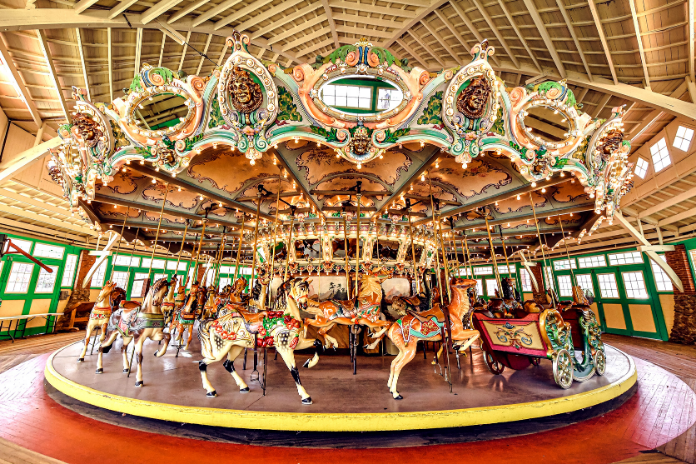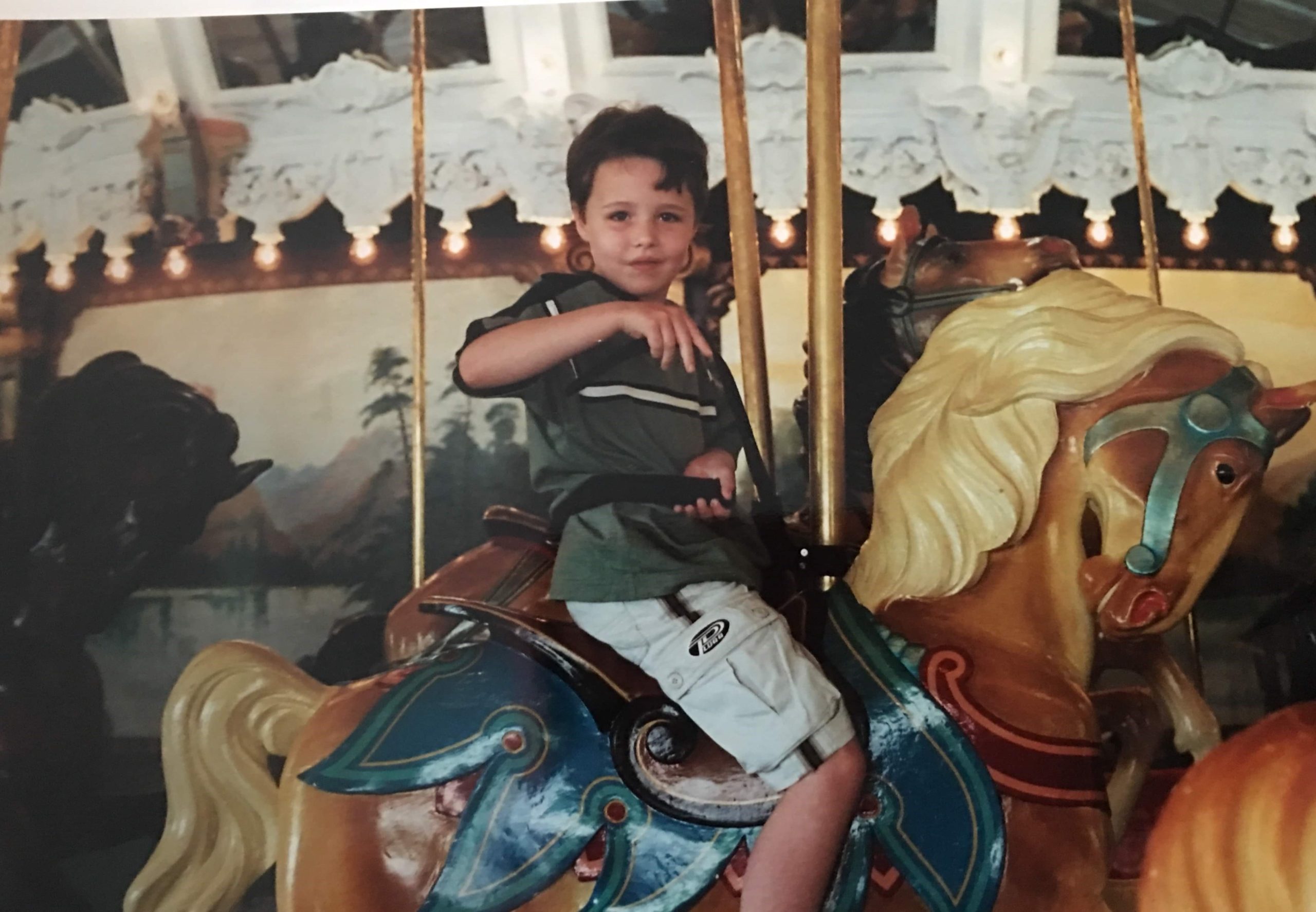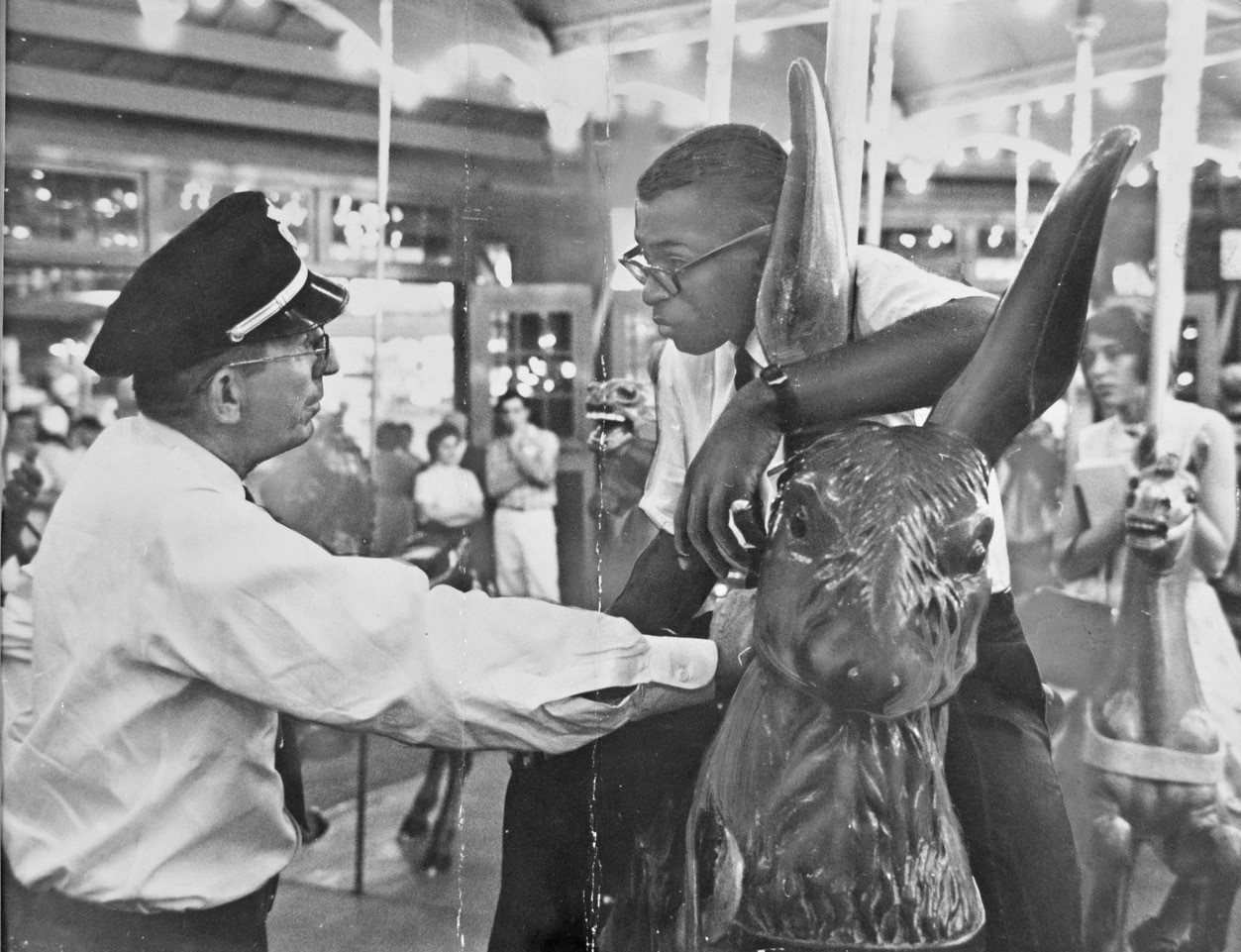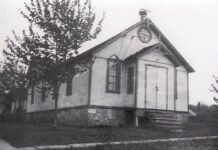
When the bedazzling Dentzel Carousel at Glen Echo Park was installed in 1921, the nation was still bruised from the Great War and worn by a pandemic — face masks and all — that buried 224 in Montgomery County, more than 6% of the population then. A new president, who didn’t live out his term, was touting a return to normalcy.
A century later, in the wake of COVID-19, that yearning for normalcy continues.
Over the past year, plans for large, lively in-person centennial events for the merry-go-round hung in the balance. A 40% budget cut forced Glen Echo Park to seek emergency funding, staff took pay cuts and jobs were eliminated.
“Those plans have all been canceled or reworked,” says Katey Boerner, executive director of Glen Echo Park Partnership for Arts and Culture. “Those have been the hardest to change, not only because we had hoped to introduce more people to the carousel, but because the park is very much a spot for the region, and we thrive when the park is filled with visitors.”
Glen Echo Park is one of the premier arts and cultural centers in the area, and the carousel — considered the heart of the park and a regional treasure — is the only ride remaining from the amusement park era that ended decades ago. Each year, nearly 55,000 visitors ride the carousel, which is listed on the National Register of Historic Places. The Maryland State Arts Council honored it in January with a 2021 Heritage Award.
To commemorate the merry-go-round’s 100th anniversary, the park is hosting a number of virtual activities — and possibly a few small public gatherings — through September.
A lecture series covers the history and restoration of the carousel, the park’s complex roots and its role in the 1960s civil rights era. A digital storytelling project, produced jointly with Story Tapestries of Germantown, features select stories from the carousel’s healthy fan base, and family-friendly activities are planned for this summer.
“It was definitely a family affair,” says T.J. Fisher, a frequent visitor to the park in the 1990s. “My mother heard through a group of church friends about this park with a marionette theater and a beautiful old carousel.”

Fisher recalls being an awestruck child, his nose pressed against the window for a closer look at the organ room, eyes fixed on the winding music rolls. At 16, he was hired to tend to the carousel.
“Some days, I would be in the ticket booth, while others I would walk around the platform to collect tickets the old-fashioned way,” he says. “There were all the daily mechanical tasks like climbing ladders to turn the flow of oil down the center pole on and off. Other than that, the job could feel like hosting a party all day long.”
The carousel is a classic example of hand woodcarving common during the early 1900s and is popular among collectors. The 12-sided colorful canopy building and the menagerie of 40 horses plus assorted animals that move to a Wurlitzer band organ were handcrafted by the famed Dentzel Carousel Co. of Pennsylvania, founded by Gustav Dentzel, an immigrant from Germany and master craftsman. It is one of only 135 functioning antique carousels in the country and one of a few still in its original location.
Glen Echo Park History
The park was developed in 1891 as a Chautauqua, a place for adults to enjoy classes, entertainment and physical activity. Success was short-lived due to a fever outbreak and rumors of malaria in 1899.
By 1903, original owners Edgar and Edward Baltzley were deeply in debt and sold the property. It became an amusement park with a bowling alley, a band pavilion and picnic grounds. An ambitious new owner, hired in 1911 by the Washington Railway and Electric Company, added another attraction each year, including a penny arcade, rollercoasters, the country’s first bumper cars, the Crystal Pool and, of course, the Dentzel Carousel.
Glen Echo Amusement Park closed in 1968, and the rides were sold to make room for high-rise apartments. Nancy Long, a Glen Echo town councilmember, corralled the community and raised $90,000 to buy back the carousel and organ.
Since 1971, the National Park Service has owned and operated the site. The Glen Echo Park Partnership for Arts and Culture, established in 2002, manages the arts programs and facilities.
Fisher, who now lives in San Francisco and writes a column for Automatic Musical Instruments Collector’s Association, an organization that works to preserve carousel organs and player pianos, said he was mesmerized by the park’s history, especially the sit-ins.

On June 30, 1960, students from Howard University in Washington, D.C., who had organized themselves as the “Non-violent Action Group,” had tickets to ride the carousel but were denied entry by the park police. The amusement park, since its beginning, was segregated. Five students were arrested.
Following the arrests, NAG members announced that they would picket the park until it was integrated. Residents from Bethesda’s Bannockburn neighborhood, which was overwhelmingly white and mostly Jewish, joined them for a “summer of protest” in record-hot temperatures. Counter protests by neo-Nazis sparked a constant threat of violence.
The park was desegregated in March 1961 after Attorney General Robert F. Kennedy threatened to pull the federal government’s lease on the land where the park ran the trolley. Three years later, the Supreme Court reversed the Howard students’ convictions.
“The collaboration that happened at Glen Echo Amusement Park was not only historic, it was bold,” says Ilana Trachtman, an independent filmmaker who grew up in the area. She is producing a film based on the events.
“School integration was only six years old, and it was normal for people to go their whole lives without having any meaningful interaction with someone who did not share their skin color,” says Trachtman. “Reaching across this unfamiliar human territory took guts.”
Today, a plaque near the carousel acknowledges the protests, and in June 2020, the park issued a “Statement of Solidarity” with those who lost their lives at the hands of police brutality.
The Dentzel Carousel’s Future
The carousel requires money and maintenance to flourish into the next century — and beyond, says William Dentzel, a descendant of Gustav Dentzel.
Glen Echo Park has been recognized by the National Carousel Association for having a proven restoration and maintenance program. Between 1983 and 2003, North Carolina-based wooden carousel preservation specialist Rosa Patton Ragan fully restored the carousel, which included repainting its 52 animals in their original colors. The band organ was refurbished in 2007, and major repairs to the roof, fire suppression system and band organ room were completed last spring — just in time for the centennial celebration this year.
Sen. Chris Van Hollen (D-MD) worked with federal and local officials to expand the county’s role in the park’s upkeep.
“It’s important that we never forget that it wasn’t always this way and that the park was a battleground in the fight against racism and for civil rights that current and future generations can learn from,” he says.
For a complete listing of events and activities celebrating the Dentzel Carousel’s centennial, visit glenechopark.org/carousel100.
A version of this story first appeared in our April/May 2021 issue.




